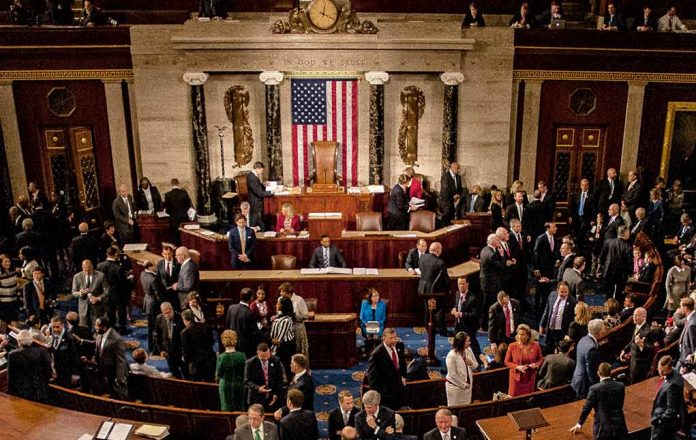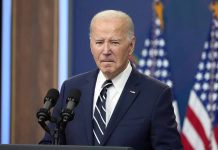
(NationRise.com) – Congress has passed a bill aimed at preventing any president from unilaterally withdrawing the country from NATO without Senate approval or an Act of Congress. The legislation, part of the National Defense Authorization Act, received bipartisan support and is expected to be signed into law by President Biden.
The bill comes as a response to concerns about the stability of the NATO alliance. It underscores Congress’s commitment to NATO, an issue that sparked controversy during the tenure of former President Trump. This move emphasizes the importance of maintaining US support for NATO, especially in light of global challenges and conflicts, notably Russia’s invasion of Ukraine.
Spearheaded by Senators Tim Kaine (D-Va.) and Marco Rubio (R-Fla.), the measure reflects Congress’s desire to ensure that any withdrawal from NATO involves a broader discussion and a more comprehensive decision-making process.
This development contrasts with former President Trump’s approach, who had expressed skepticism and criticism toward the alliance. Advocates for Trump’s approach argue that his stance aimed to push NATO member-states to meet their defense spending obligations, thereby lessening the burden on the United States.
However, this new legislation highlights Congress’s belief that a united front and commitment to NATO are essential for national security. President Biden, who has consistently supported NATO and reinforced US commitment to the alliance, is expected to endorse this bill.
Critics of the legislation question whether Congress should limit the President’s authority over international agreements. They argue that entering the US into a potentially irreversible international treaty like NATO through legislation could undermine the nation’s autonomy in decision-making.
Congress, as a governing body, holds the authority to pass legislation in the United States. While the President possesses executive powers, Congress has the ability to enact laws, including those that impose limitations or regulations on the President’s authority. This interplay between branches is intended to maintain a balance of power and ensure accountability within the government.
This move by Congress signifies an ongoing debate about the balance of powers between the Executive and Legislative branches concerning international commitments like NATO.
Copyright 2023, NationRise.com






















